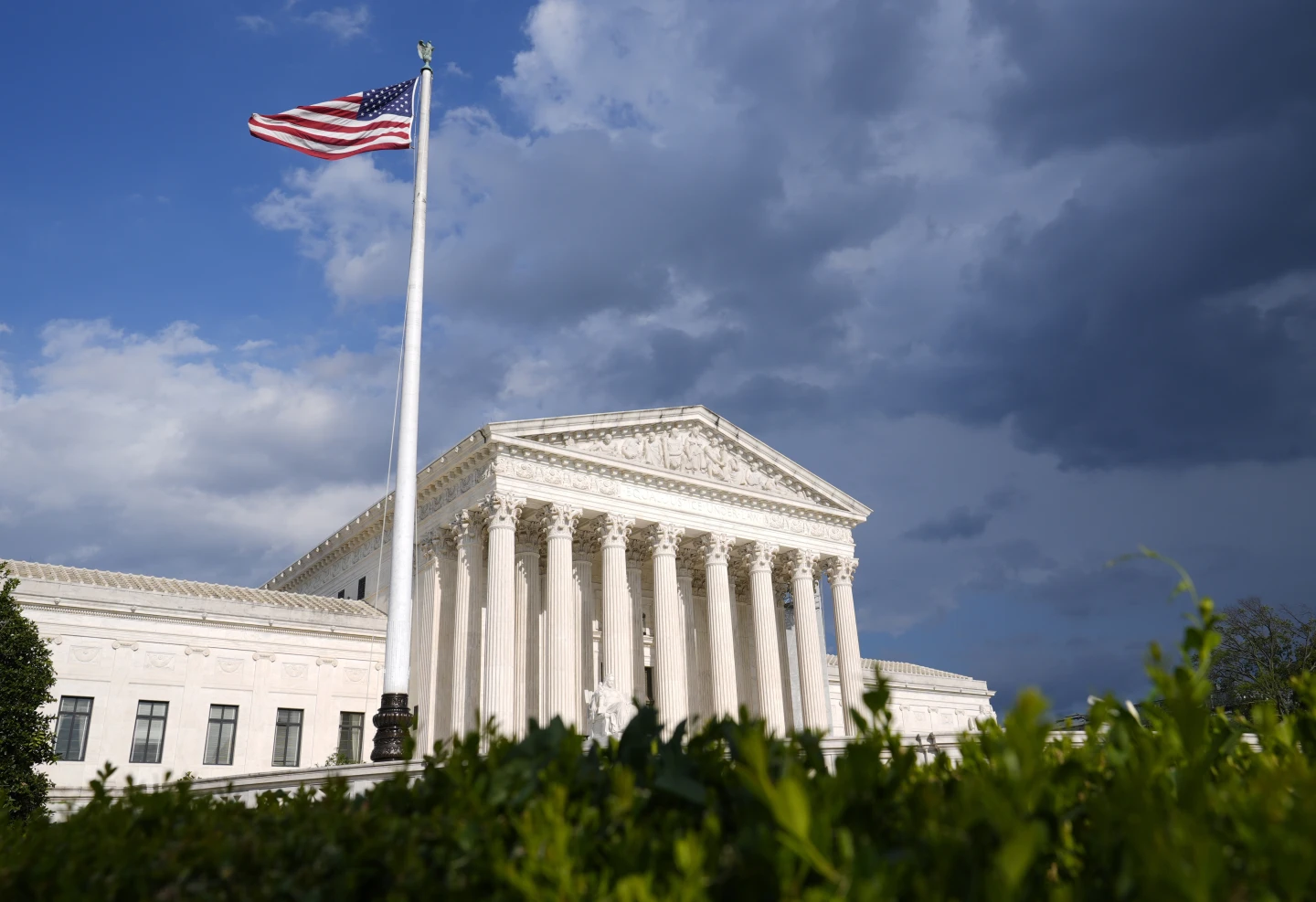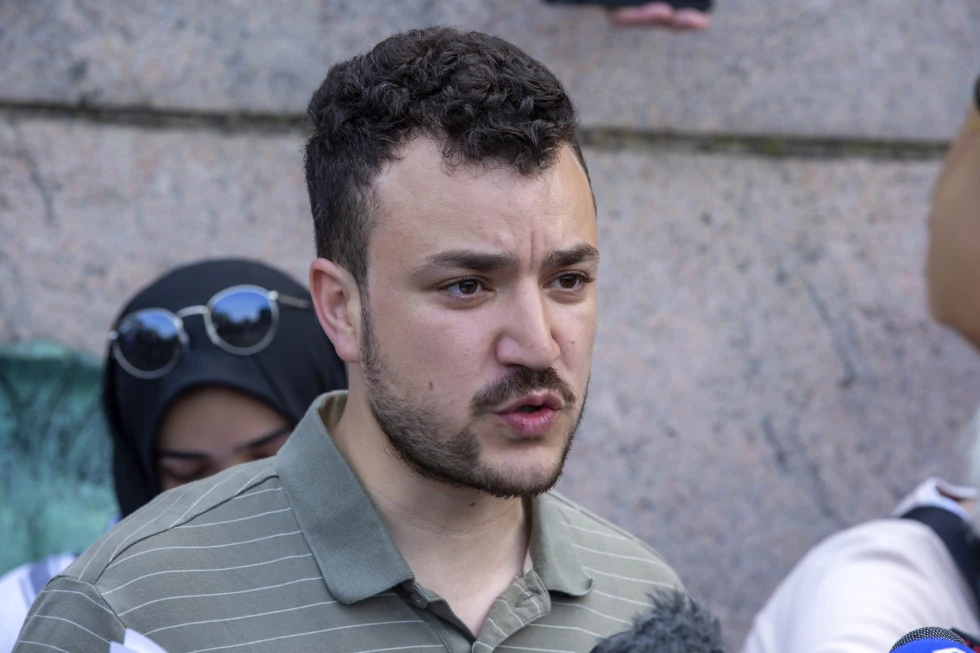Detained Palestinian activist Mahmoud Khalil was finally able to hold his one-month-old son for the first time on Thursday, after a federal judge stopped the Trump administration from making the meeting happen through a plexiglass barrier.
This visit happened just before an immigration hearing for Khalil, who is a legal permanent resident and a Columbia University graduate. He has been held in a Louisiana jail since March 8.
He was the first person arrested under President Donald Trump’s new actions targeting protesters against the war in Gaza. He is one of the few who is still in custody while his case continues in both immigration and federal court.
U.S. Immigration and Customs Enforcement denied his request last month to be present for his son’s birth on April 21.
The issue of whether Khalil would be allowed to hold his newborn or would have to see him through a barrier led to several days of legal arguments. Khalil’s lawyers said the government was punishing him for political reasons.
On Wednesday night, a federal judge in New Jersey, Michael Farbiarz, stepped in and allowed the visit to happen on Thursday morning, according to Khalil’s lawyers.
This decision came after federal officials said earlier in the week they would fight against Khalil’s lawyer’s request for a “contact visit” with his wife Noor Abdalla and their son Deen.
Instead, the officials said the visit could only happen with a divider between them, and no physical contact allowed.

“Granting Khalil this relief of family visitation would effectively grant him a privilege that no other detainee receives,” Justice Department officials wrote in a court filing on Wednesday. “Allowing Dr. Abdalla and a newborn to attend a legal meeting would turn a legal visitation into a family one.”
Brian Acuna, the acting director of the ICE field office in New Orleans, said in a written statement that it would not be safe to let Khalil’s wife and baby into a secure part of the facility.
Khalil’s lawyers argued in their legal documents that denying the visit shows more proof that his arrest and distant detention are meant as punishment. They said his wife and child clearly posed no safety risk.
They pointed out that Abdalla had traveled nearly 1,500 miles (2,400 kilometers) to reach the remote detention center so her son could meet his father.
“This is not just heartless,” Abdalla said of the government’s position. “It is deliberate violence, the calculated cruelty of a government that tears families apart without remorse. And I cannot ignore the echoes of this pain in the stories of Palestinian families, torn apart by Israeli military prisons and bombs, denied dignity, denied life.”
Farbiarz is currently reviewing Khalil’s request for release, as he challenges a Louisiana immigration judge’s decision that he can be deported.
Khalil has not been charged with a crime, but the government wants to deport him, claiming that his leadership in protests against Israel’s war in Gaza could have gone against U.S. foreign policy interests.
Khalil is scheduled to appear before immigration judge Jamee Comans for a regular hearing on Thursday. His lawyers said they don’t yet know if the baby will be allowed to attend.


